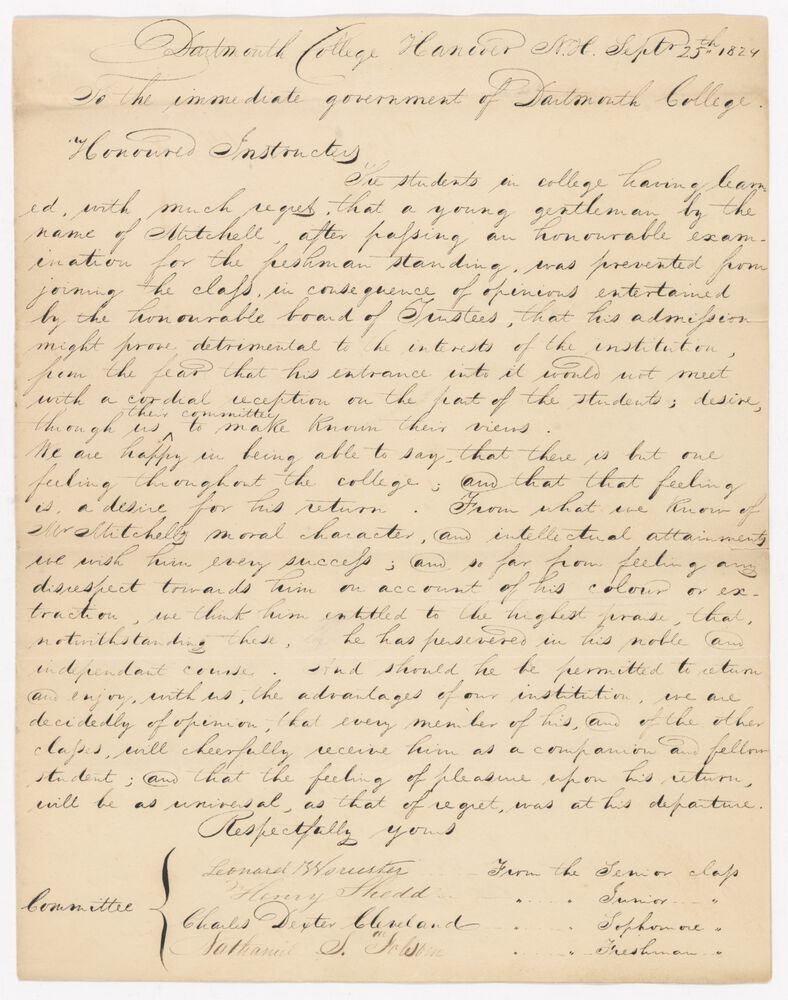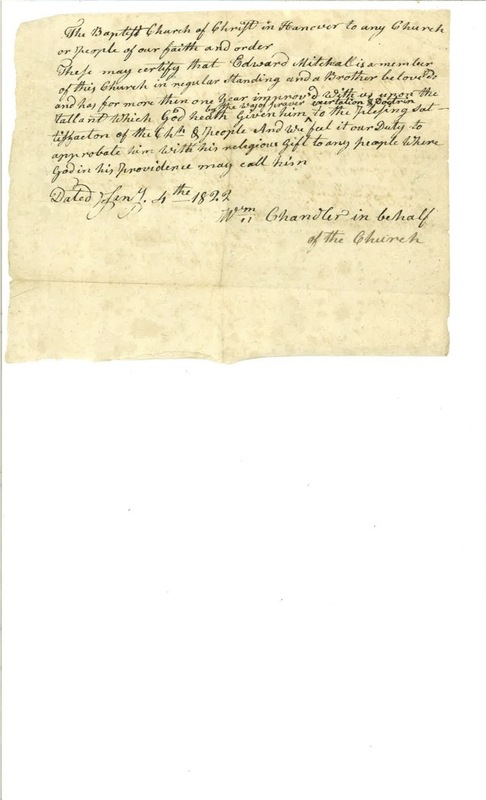Admitted to Dartmouth
Once a sailor, then a porter, and now an attendant to a College president, Mitchell returned to Hanover with President Brown, who died a month later. Mitchell lived in the Brown household for the next four years. He served as a lay preacher to brethren in the Hanover-Etna Baptist church and then applied to Dartmouth in 1824. The Baptist church clerk wrote in a supporting letter that Mitchell was “a person of piety and promising talent who sought an education, for which he was qualified and deserving.”
In 1824, Mitchell passed the Dartmouth faculty entrance examinations but was denied admission by the Dartmouth Board of Trustees, who averred that they did not want to offend students. Upon learning of the Trustee’s decision, Dartmouth students from all classes convened and transmitted their collective protest in a decorous letter that concluded:
Far from feeling any disrespect towards him on account of his color or extraction, we think him entitled to the highest praise. We will cheerfully receive him as a companion and fellow student.
The student intercession was led by a future abolitionist spokesperson, Charles Dexter Cleveland 1827, and would be celebrated later as one of the earliest instances of Dartmouth student activism. Mitchell graduated “with honor” in 1828 to become the third self-identified man of African ancestry to graduate from a U.S. college and the first of the Ivies by four decades.




